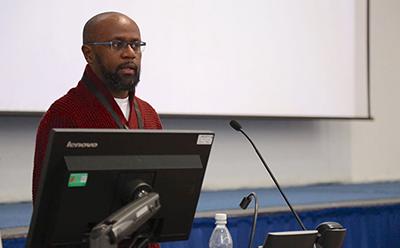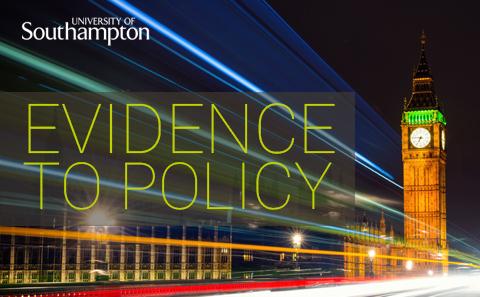
Read more on the evidence informed policy making
Learn more from Gavin Cistigan, Public Policy|Southampton Director about the evidence informed policy making and the role of universities

The different social media platforms (e.g.: Facebook, Twitter, Instagram, WhatsApp, etc.) have become a ubiquitous presence in people’s lives across the globe, including youngsters aged 13-17 years. Facebook is currently the world’s prominent social media platform, and amongst its 1.8+ billion users, 172 million encompasses this cohort of young people. In the UK, 59.3% of the country’s population are active users of social media platforms spending an average of 2:13 hours per day connected to them. Within this group, 1.8 million users comprise young people aged 13-17 and 55.6% of them are girls.
What is the relevance of these figures? First, they reinforce the fact that social media has become an influential tool mediating people’s daily social interaction and also a source of information (even though its reliability is subject to debates). This means to say that there is a large proportion of frequent social media users in the UK and several of them can be targeted by abusive users. Second, because the figures evidence that young people (and girls in particular) can potentially be exposed to a myriad of inappropriate content and be subjected to different forms of abuse and bigotry that circulate online. Supporting evidence for this argumentation is found in a recent report published by the UK charities Children’s Society and YoungMinds. It reveals that 38% of young people reported that social media has a negative impact on how they feel about themselves. Moreover, 46% of girls stated that social media had a negative impact on their self-esteem. However, the question is why social media platforms have become a form of digital public square where people distil different sorts of bigotry and hate speech?
I have faced a similar question in my own sociology PhD research exploring the embedded meanings of racialized discourses against Black Brazilian women on Facebook. The findings suggest three main aspects contribute to our understanding of this phenomenon. First, social media platforms enable people to disregard any social distance that might exist between them and the target of their bigotry. This means that the proponents of such ideologies can reach even people that, in real life, they may not have access or any relationship and, consequently, amplifying their targets. Second, the proponents of bigotry, hate speech, bullying, etc. nurture the belief that hiding behind an alias or a fake profile grant them the permission to unleash their hate towards anyone and not being held responsible for their attitudes. Finally, the technology affords these users to connect with like-minded people and amplify the reach and reverberation of their voices, such as an endless echo in cyberspace. On this regard, my study reveals that derogatory posts on Facebook can keep engaging new users in the same conversation for up to three years. The effect of this continuation is that the derogatory post keeps being reinforced and increasing the discomfort caused to the victim.
Therefore, in conclusion, I ponder that the civil society must be fully aware of these aspects related to social media and their impact on people’s lives (especially amongst young people). It is also of paramount importance that policymakers become well informed about the social implications of this phenomenon in order to discuss and implement preventive and corrective policies. As for large corporations behind the major social media platforms, it is essential that they take action first to make clear for abusive users that bigotry is not the same as freedom of speech. Second, that their social media platforms should not afford such users nurture the belief that they are a sort of safe paradise for impunity. Lastly, I also advocate that primary and secondary schools play an important role in the process to tackle online bigotry. They represent social spaces in charge of the formation of future citizens, and it is important to foster on pupils precious democratic values such as respect for their fellows both in the offline and in the online environments and the understanding that both of them are not detached from each other.
Luiz Valério P. Trindade | PhD in Sociology

Learn more from Gavin Cistigan, Public Policy|Southampton Director about the evidence informed policy making and the role of universities

Catch up with past articles from researchers at the University of Southampton